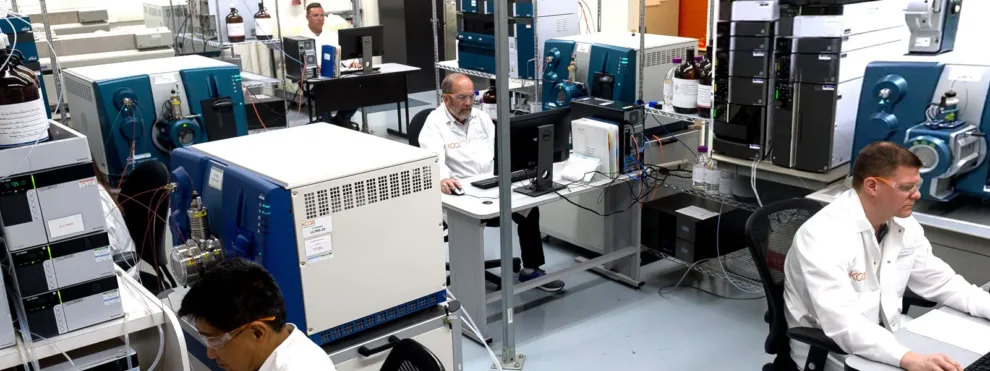The long-term economic consequences of the COVID-19 virus are yet to be determined. However, short term it is having major impact on research & drug development so companies are adapting in order to survive. Many of our clients are engaging us much earlier in the bioanalytical process while they work around mandated controls in their home states. Most usually have internal resources for early method development and screening of reagents, while some fully develop and qualify methods before transfer to external providers. With the introduction of social distancing policies, many companies are limited or even restricted from entering the lab, which obviously prevents them from doing any lab work. KCAS’ business is to help companies develop lifesaving drugs so we were deemed an essential business by the State and have implemented policies to ensure that we stay open under current conditions.
survive. Many of our clients are engaging us much earlier in the bioanalytical process while they work around mandated controls in their home states. Most usually have internal resources for early method development and screening of reagents, while some fully develop and qualify methods before transfer to external providers. With the introduction of social distancing policies, many companies are limited or even restricted from entering the lab, which obviously prevents them from doing any lab work. KCAS’ business is to help companies develop lifesaving drugs so we were deemed an essential business by the State and have implemented policies to ensure that we stay open under current conditions.
At KCAS, we have been planning for weeks to ensure we can stay at or near full capacity. The safety of our employees is first and foremost on our minds, and this led to numerous process changes. 2-3 weeks before the country started to go on lock down we moved our reception into a restricted vestibule area, installed remote communication and mandated that all visitors answer several questions related to their health, and measure their temperature prior to being given access to the building.
Our lab staff are the only personnel allowed in the KCAS facility. We monitor their health on an ongoing basis and have implemented flexible working hours that meet the needs of the employees as well as the business. More recently, we have implemented cleaning procedures using Clorox® Total 360®, a proven Electrostatic Technology that ensures the safety our employees. This is just a small sample of the process changes we have made to ensure we are safe during these unique times; more info can be found here about how we are dealing with the COVID-19 crisis.
Both large and small biotech and pharma are feeling the effects of COVID-19. Larger companies, despite ample resources, have seen their capacity plummet. They rely on CROs to pick up the workload, most notably for screening of reagents and initial feasibility/method development of a given assay. Small companies, particularly those located in local incubators, have seen their ability to function come to almost a complete standstill. They are used to working in common or shared lab space but have been restricted to just a few days/hours per week. We have been asked to help with everything ranging from method development to cell culture and maintenance of critical cell lines.
Times have certainly changed. Has the time arrived for you to think differently about your bioanalytical CRO? We at KCAS are open for business and ready to help.

